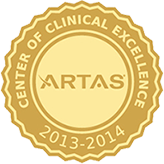In a recent article in Feel Costa Rica, a Real Estate magazine, discusses how Costa Rica is a very appealing option for medical tourism.
Several countries now top the list for medical tourism, including Canada, Israel, the United Kingdom, Singapore, and Costa Rica. Ranked as among the most appealing destinations for medical tourism last year, these countries have quite a lot to offer, including the ability to recuperate in a beautiful, foreign location. Other countries that are gaining appeal in terms of medical tourism include South Korea, Italy, Colombia, Spain, and Dubai, as ranked by the International Healthcare Research Center.
The Medical Tourism Index measures the appeal of a country for the purposes of medical travel in addition to several key dimensions. As part of the latest ranking, Canada was determined to top the list for both Medical Tourism Costs and Country Environment. Costa Rica came out the winner for Destination Attractiveness. Israel was ranked highest in Medical Facility and Service. The list was based on a survey conducted among 5,000 Americans and included 30 countries.
The Appeal of Medical Tourism in Costa Rica
Medical tourism in Costa Rica has been on the rise the past several years. Recent news indicates that the medical tourism market is expected to increase to more than $32 billion over the course of the next four years. Much of that increase is due to rising healthcare costs. Improved standards of healthcare technology in countries such as China and India have also contributed to increased medical tourism. Other factors, such as increased adoption of advanced technologies, improved exchange rates, and an ageing population have also contributed to the rise of medical tourism.
Travelers seeking procedures abroad are often attracted by a shorter waiting period for treatment and better pricing for procedures, including cosmetic surgeries. In addition to continually rising healthcare costs, a number of surgical and medical procedures are no longer covered by insurance. As a result, it has now become vital for Americans to seek out more affordable, alternative healthcare treatment options. The opportunity to travel to a foreign country that offers more affordable pricing and quality healthcare in a serene environment has proven to be the ideal solution for many people. Medical tourism has now grown far beyond elective procedures to include non-elective procedures, such as hip replacements, neurosurgery, and heart surgery. This has proven to be particularly important in light of the aging of the Baby Boomer population in the United States.
The rise of medical tourism has certainly proven to be good news for Costa Rica. Most recently, it was announced that La Posada, located in Guanacaste has been sold to Rythmia Holdings Company SRL. The new owner plans to convert the property into a medical treatment center and promote the facility for medical tourism with a focus on holistic health. Estimates indicate that the project will create more than 100 jobs, including both direct and indirect jobs. Operations are slates to begin early this year.
This Information is brought to you courtesy of Dr. Mark Bishara and The Paragon Plastic Surgery & Med Spa



Posts
Many myths surround the seemingly glamorous world of plastic surgery. But in fact, plastic surgery is a lot like every other medical specialty with highly-trained physicians providing many different services. Here are the Top 5 Plastic Surgery Myths.
#5 Plastic Surgery is All About Beauty and Vanity
Although breast augmentations, Botox and facelifts get all the press, plastic surgery encompasses everything from correcting birth defects such as cleft palates to post-cancer breast reconstruction and work-related hand injuries.
Plastic surgeons care about the functional and overall results after surgery, not just the aesthetics (although we are specifically trained to optimize those, as well). When a patient does choose to have surgery for cosmetic reasons, it is often to correct areas which are not amenable to diet, weight loss or nonsurgical procedures.
#4 Plastic Surgery Patients are the Rich and Famous
If plastic surgeons only operated on the 1%, we wouldn’t have a thriving plastic surgery industry.
Most aesthetic patients are not the rich and famous, but are average people who simply wish to restore confidence, enhance their overall appearance and improve their lives.
#3 Only Women Get Plastic Surgery
Although women have been the traditional customers of plastic surgery, men are turning to plastic surgery in increasing numbers.
Less invasive procedures such as Botox, laser treatments and dermal fillers can give men a rejuvenated and naturally youthful appearance without any downtime and at relatively low costs. These, along with liposuction, are the most popular cosmetic surgery treatments for men, with many men reporting a need for a competitive edge in the workforce as the reason they have pursued cosmetic treatments.
#2 Plastic Surgery Leaves No Scars and Lasts Forever
Plastic surgeons are great at making scars look better, more refined and smaller, but all types of plastic surgery will generally cause some type of scar formation. We can often recommend the best way to minimize scarring, and give advice and treatments on how to make your scar look as great as possible after surgery.
And while many plastic surgery procedures are long lasting and can give you years, if not decades of personal satisfaction, many factors determine how long the results will last. Plastic surgery can turn back the hands of time – but the clock keeps on ticking. Great skin care, less-invasive office procedures, surgical touch-ups, and your overall health are all important to maintain your natural good looks.
#1 Plastic Surgery is the Same as Cosmetic Surgery
All plastic surgeons do not have the same training. Many doctors trained in, and board certified in, other specialties such as gynecology or family medicine have ventured into plastic surgery, causing what is known as “white coat confusion“. Yes, they are board certified – but not in plastic surgery.
Being board certified in plastic surgery means that a physician has undergone years of specific training related to all the nuances of cosmetic and plastic surgery. Patients choosing a surgeon for their cosmetic and plastic surgery procedures should always inquire about a doctor’s specific board certifications.
This information is brought to you courtesy of Dr. Mark Bishara and The Paragon Plastic Surgery & Med Spa with offices in Mansfield and Southlake, TX
It used to be that one would go to a salon simply to get one’s hair and nails done, but these days salons offer all kinds of beauty treatments including cosmetic injectables and even more invasive procedures. The prices can be very cheap, but the results can be catastrophic.
Why is it crucial for consumers to take a second look and ask more questions? Notably, there were dramatic cases out of Miami last year when reports surfaced about illegal cosmetic injections being performed on several women. “Doctors” were accused of injecting these women with substances like mineral oil, super glue, concrete, and Fix-a-Flat. The women reportedly were getting buttock injections in hopes of attaining a healthy “backside”, but they could have lifetime disfigurement as a result.
Earlier this year, in Tyler, Texas, a salon owner was arrested for injecting clients in the breast and buttocks with an unknown substance (likely automotive grade silicone) and closing it with a superglue-type sealant. Why would someone get this done to their body? Perhaps it is the very low cost and the lack of information about what these victims are being injected with.
Please be educated on the three P’s of getting a cosmetic procedure done as safely as possible: Product, Practitioner, and Place.
1. Product – Make sure the product you are getting injected with is an FDA approved product for the particular area you are wanting injected. The FDA has approved certain products for injection into different regions of the face for cosmetic purposes, like Botox, Juvederm, Restylane, Radiesse, and Sculptra. There is no synthetic material that has been approved by the FDA for injection in the breast so that is a red flag itself. Ask what neurotoxin or filler is being used, and even research the product labeling online. If a provider refuses or is unable to tell you what material you are being injected with, do not let that person treat you.
2. Practitioner – Know what type of practitioner to go to like a physician trained to do cosmetic procedures or his/her designee has cosmetic injection training.
3. Place – Don’t get injected in a place that you feel uncomfortable undergoing a procedure in such as a salon, mall, or private home. These are medical procedures and they should be performed in a medical office or medical facility due to its sanitary environment with resources at hand. Often the price may seem too good to pass up, but if you hear of a Groupon ad that’s too good to be true or a salon owner that is offering rock bottom prices on something that is going to be injected in your face or body, let the buyer beware as it be dangerous or even fatal. Even at a Botox “party” or event, a physician must be supervising anyone who is doing these procedures and they must the appropriate credentials.
In other words, do your research, ask questions, and become informed!
This information is brought to you courtesy of Dr. Mark Bishara and The Paragon Plastic Surgery & Med Spa



